Rationalization: The Power of the Mind
Did you know that rationalization is a form of self-deception? This defense mechanism can keep individuals stuck in abusive relationships.
As Craig D. Lounsbrough said: “How many times has our conscience. . . prompted us to ‘draw the line,’ and we showed up with an eraser?”
Victims rationalize their abuser’s behaviour in various ways, for example:
- “I acted in a way that forced him to hurt me.”
- “It’s not him that hurts me, he’s not himself.”
- “It’s just the once, he’s going to get better.”
- “He doesn’t mean it.”
- “But he loves me!”
Why rationalize?
Reassuring yourself and giving logical reasons for illogical occurrences can make a bad situation seem tolerable, or at least understandable. Rationalizing may protect you from the psychological damage that comes with labelling yourself as a victim.
Some reasons why people might rationalize:
- Not wanting to believe that someone they love is abusive.
- Being unfamiliar with the signs of abuse.
- They may not recognize their situation for what it is.
- Believing heavily in gender roles.
- e.g. Women should be subservient.
- Thinking it’s shameful to be labelled a victim.
If they do realize the severity of their situation, the victim likely believes that things will improve. Sometimes people deliberately fool themselves, but many don’t even realize their brain has employed this defense mechanism.
According to the cycle of violence, an abuser often follows a violent episode with apologies and affection. They may also pretend the incident didn’t happen. This “honeymoon phase” can encourage rationalizing behaviour in both partners. The victim may be convinced by assurances that it’ll never happen again. Confused by their partner’s lack of acknowledgment, they come to believe the incident wasn’t as bad as they remember.
The Dangers of Rationalization
The true danger of rationalization lies in its ability to keep a victim stuck in a bad situation. It makes the abuse seem less serious than it is. The power of the mind is astonishing when the victim denies the dangerous reality of their relationship. No intimidation tactics are needed to force them to stay.
If you know someone who rationalizes
Be sympathetic and understand the reasons behind their behaviour. People rationalize for all sorts of reasons. They probably have good cause for using a defense mechanism.
Questions and accusations aimed at the victim (“Why didn’t you leave?” “How could you not see the situation?”) create emotions that make the victim feel at fault for staying. This may also make them more afraid to leave due to the possibility of facing such accusations.
You can help someone break out of this cycle by providing resources and a listening ear. You cannot force someone to open up, but let them know that you’re concerned and are there to support them. If they do decide to confide in you, thank them and assure them their feelings are valid. Provide resources that could help them understand what a healthy relationship looks like.
More information on how to help someone
If you think you’ve been rationalizing
As they say, hindsight is 20/20. When the abuse builds up slowly, it’s hard to say when it’s time to quit. Once you’re out of the shadow of a bad situation, it’s easy to realize things were wrong.
It is vital to your safety that you don’t make excuses for your partner and that you do not let yourself stay in a bad relationship because you’re scared of what others will think. You deserve happiness and a healthy relationship that you don’t have to make excuses for.
You are worthy of respect. The abuse is not your fault. Reaching out for help is not a sign of weakness.
Support is available to help you achieve safety and happiness.
- Don’t hesitate to call us at 604 941 711 (or our crisis line, 604 492 1700)
- A list of B.C. and local/Lower Mainland resources
The National Domestic Violence Hotline (USA) website has lots of helpful information

Photo by Xavier Sotomayor on Unsplash
Dating Safely 101: Reflection
This is a 3-part blog series on dating safely. We invite you to read the blogs on preparing for the date; during the date; and after the date and provide your feedback by posting a comment below the article. If you’d like to see a particular topic on the blog, feel free to suggest one to us!
Dating Safely 101: Reflection
Whether your experience was dreamy or dramatic, take time to reflect on your date experiences. This can help you learn some valuable lessons.
Consider the following to gain insight on the experience:
- If you interacted with staff at a restaurant or movie theatre, how did your date treat them?
- How did they talk about their coworkers or friends? Do they tend to place blame on others?
- Be aware of evolving relationship dynamics:
- A change in relationship dynamics can shift an individual’s expectations of a relationship.
- A friend whom you begin to date may expect the relationship to move faster because you already know each other.
- Remember that there’s no obligation for a second date. If they insist on one and you don’t want that, reach out to friends and family for support.

If the date went well, set up a second one! Dating doesn’t have to be a scary thing; it’s a great way to get to know people. You might even find a loving partner who will appreciate you and respect your boundaries. Don’t psych yourself out worrying about the worst possibility. It’s a good idea to be smart and cautious, however you can also be open to new and exciting experiences.
This concludes our three-part series on dating safely. Tell us what you thought in the comments below, and read parts one and two if you missed them!

Dating Safely 101: On the Date
This is a 3-part blog series on dating safely. We invite you to read the blogs on preparing for the date; during the date; and after the date and provide your feedback by posting a comment below the article. If you’d like to see a particular topic on the blog, feel free to suggest one to us!
Dating Safely 101: On the Date
You’re on a date and things are… getting awkward. The silences are dragging on. Your date’s not what you expected. This might become a funny story later… But for now, what to do? How do you escape this uncomfortable situation?
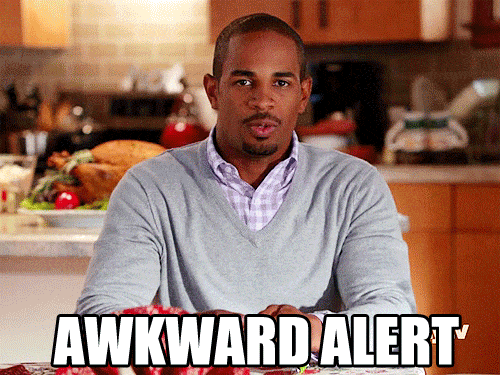
Keep the following tips in mind:
- Provide your own transportation
- If you need to leave you don’t want to have to wait for your date, especially if you want to leave without them. Take public transit, a taxi, or have a friend drop you off and pick you up.
- Reschedule if you need to
- If your date has a problem rescheduling to make you feel comfortable, they probably aren’t who you want to be with. How they choose to respond to your request says a lot about their character.
- Bring a friend
- Having a friend in the area can be calming. They don’t have to be right next to you, but a nearby pal can act as your backup if you need to leave.
- Drink responsibly
- If you don’t want to have to worry about watching your drink or your alcohol intake, skip drinks for the night. It is your choice to want or have a drink-free evening. If your date pushes you to drink, be aware- it might be a sign that you shouldn’t.
- You don’t owe them anything
- You are equally entitled to feel comfortable in the pacing of the date. Don’t let them pressure you into anything before you’re ready.
- Trust your instincts
- Don’t be afraid to leave if you get the feeling that this date isn’t going well. It might feel taboo to leave in the middle of a date but if you are not comfortable then you have every right to leave. If you really need an excuse, get a friend to call you or use an app such as Bad Date Rescue.

Unless you have some kind of superpower, not every date will be a success. We hope these tips help you avoid some awkward silences and- better yet- ensure your safety. You’ll be entertaining your party guests for years to come with the stories of your near-misses.
This is the second installment of a three-part series. Read Part One if you missed it! Come back tomorrow to learn how to reflect on your dating woes (Part Three).
Dating Safely 101: Preparation
This is a 3-part blog series on dating safely. We invite you to read the blogs on preparing for the date; during the date; and after the date and provide your feedback by posting a comment below the article. If you’d like to see a particular topic on the blog, feel free to suggest one to us!
Dating Safely 101: Preparation
Dating involves trial and error, and in the game of love there are sometimes more fumbles than successes. But getting yourself out of your comfort zone can help you meet some incredible people. Thankfully, you can also take steps before, during, and after your date to help you have the best experience possible.

Peter Bernik
You’ve texted your friends. You’ve planned your outfit. You’ve shaved. What else can you do to ensure your date goes off without a hitch? Scroll through your date’s Instagram for an hour? Actually… some research might be a good idea!
Your safety is important! To set yourself up for success, it’s important to take time to put precautions in place. Consider the following when you plan that dream date:
- Location, Location, Location
- Set up the date somewhere public and easy to get to. Choose a location you’re comfortable in and meet early enough that plenty of people will be around.
- Update others on your whereabouts
- Always let someone know where you are, when you are going, who you are going with, how they can reach you, and how long you will be away.
- Check in
- Have a friend send a check-in text; or, call at a predetermined time in case you need an excuse to leave
- There are electronic solutions such as “Chelsea Handler: Gotta Go” or eHarmony’s “Bad Date Rescue” (search for these on your app store). These have the ability to send a fake phone call to you.
- Do your research
- Google your date and browse your date’s social media profiles (if they have them). It’s important to gather as much information as you can, especially when meeting a stranger.
You’re welcome for the excuse to Google your date. Safety isn’t the only thing to keep in mind, but it is an important consideration! Possibly more important than what shirt you’re wearing, though you might not agree with that when you’re getting ready to leave.
This is the first installment of a three-part series (Read Parts Two and Three here). Check back tomorrow for some strategies to use if things get awkward during your date!
Rose’s Story
I remember the day I met 6-year old Rose and her mother, who had just come to Joy’s Place Transitions House for their safety. They had just fled a horrific domestic scene and an unhealthy family. Her mother was scared that her partner would make good on his threats to harm them should they leave.
Rose had never known a healthy relationship, never felt safe, or how to trust. I am so grateful they found their way to us.
We met with and listened to Rose and her mom. Rose’s mom was conflicted- she still loved her partner despite the pain he caused; but could not stand to see her daughter exposed to such violence.
Often, people like Rose’s mom blame themselves for the abuse they suffer, for staying, for continuing to love their abuser.
But the truth is, so many women who are abused as adults grew up in abusive homes themselves. We work with people to explain the dynamics of abuse and break the cycle.
Our staff and counsellors spend the time needed with every woman and child until they can claim their sense of self, and find the courage to set their life on a new path.
It was crucial for Rose and her mom to have a place like Joy’s Place Transition House to turn to. Today, Rose and her mom are living a new life. They are no longer scared and have learned to trust.
It is only with the help of donors that we can be there for girls like Rose and her mom. If you’re interesting in supporting this critical work you can donate here (our CanadaHelps page), call us at 604 941 7111, or contact info@tricitytransitions.com

#PrideMonth: Abuse in LGBTQ+ Relationships
It’s Pride Month, and rainbow-festooned celebrations are occurring around the world. While LGBTQ+ issues are in the spotlight, we want to celebrate diversity and help everyone be their authentic self. Abuse happens in LGBTQ+ relationships too, and people can face unique challenges due to their minority status. It’s something of a silent issue, but there are resources out there to give people the support and safety they deserve.
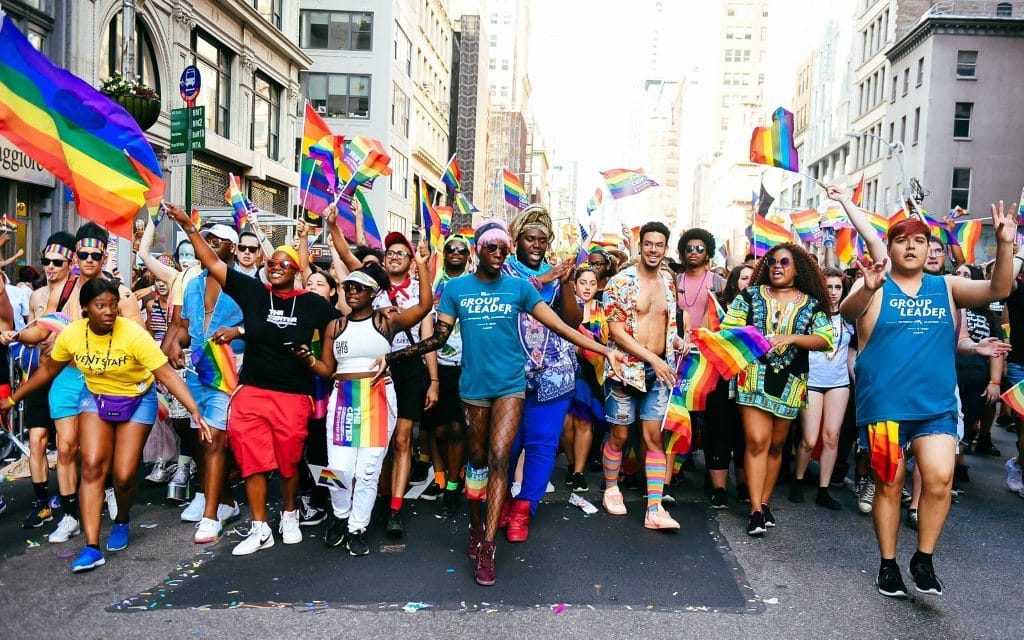
Source frontgatetickets.com
People often feel unable or scared to reach out for help due to a variety of factors:
- Isolation from traditional support systems.
- Lack of dedicated organizations to help LGBTQ+ individuals.
- Heteronormative depictions of domestic abuse, which prevent people from recognizing the signs.
On top of threats of physical and emotional abuse, a specific set of issues can arise in abusive LGBTQ+ relationships. Some examples include:
- Fear of isolation from the community for speaking out against a fellow community member.
- Threats of “outing” the victim if their sexual orientation or gender identity is not already publicly known.
- The bullied becoming the bully, as the abuser may have experienced discrimination in the past.
Despite these added barriers, there is lots of information and support to be found.
If you are an LGBTQ+ person experiencing abuse, know that:
- Your experience is valid and you deserve to be heard.
- You are worthy of respect, safety, and love.
- Support is out there. You are not alone.
You can find various national and province-specific LGBTQ+ hotlines at http://www.saravyc.ubc.ca/reports-resources/links/resources-for-trans-youth-allies/crisis-lines-for-lgbtq-youth/
A guide to domestic abuse and trans safety issues (including B.C. resources): http://qmunity.ca/wp-content/uploads/2015/03/Trans_folk_relationship_safety_website_version.pdf
How to support LGBTQ+ individuals experiencing domestic violence: http://qmunity.ca/wp-content/uploads/2015/03/Supporting_LGBTQ_survivors_Digital_Draft_3_MOBILE.pdf

Source: Jess Chen at jess-chen.com/animations
Sources
http://www.thehotline.org/is-this-abuse/lgbt-abuse/
http://www.loveisrespect.org/is-this-abuse/abusive-lgbtq-relationships/
https://www.breakthecycle.org/blog/how-help-lgbtq-persons-abusive-relationships
Paige Leach
Celebrate Summer with JAK’s and Tri-City Transitions
Tri-City Transitions and JAK’S Beer, Wine, Spirits are teaming up to raise money for the vulnerable women and children of the Tri-Cities.

The Tri-City Transitions Society provides a variety of housing and health solutions to vulnerable women and children. “We have been supporting the Tri-Cities community since 1975, and help over 1500 women and children each year” says Carol Metz Murray, Executive Director. “We always welcome community and corporate support of our charity.”
On Saturday, June 23rd, JAKS will be celebrating summer at 1410 Parkway Boulevard and 3025 Lougheed Highway and will donate 10% of the proceeds to Tri-City Transitions. “We are proud corporate citizens of Tri-Cities and are pleased to help such a worthy charity” says Mike McKee, Community Outreach partner of JAK’S Beer, Wine, Spirits.
JAK’S Beer, Wine, Spirits offers BC’s best selections of local craft beer, wines and spirits. “Our summer celebration will highlight all the amazing products produced right here in BC. We will have lots of products to sample and prizes. Our grand prize is a wine tour in the Okanagan.”
For more information on donating to Tri-City Transitions visit www.tricitytransitions.com
For more information on our Summer Celebration visit www.JAKS.com
5 Qualities of Healthy Relationships
“A healthy relationship doesn’t drag you down. It inspires you to be better.” – Mandy Hale
It can be easy to overlook these basic principles when you’re arguing over who should take the garbage out, but sometimes it’s worth assessing the health of your relationship. All relationships, romantic or not, begin by building upon a foundation of trust and respect.
Here are five qualities that healthy relationships have in common:
Communication
- Don’t be afraid to ask for what you want.
- Be your own advocate!
- Access outside resources if you need to.
- Sometimes you can’t resolve problems by yourself. A therapist or counselor can be an impartial sounding board.
- Address problems directly instead of letting resentment grow.
- Be straightforward but not hurtful when bringing up issues. Respectful language goes a long way.
- Don’t presume to know how your partner is feeling.
- Even if you’ve been dropping hints about your true feelings… They’re not a mind reader!
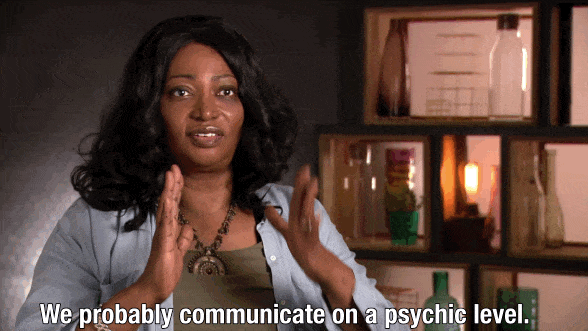
Having Mutual Respect
- Compromise
- You may have to meet them halfway on issues that are important to them.
- Value each other’s opinions and show it by actively listening.
- Avoid thinking of your own response while they’re talking.
- Acknowledge their feelings and ask for clarification if needed.
Knowing Your Self-Worth
- Respect yourself- don’t settle for less than you deserve!
- Make sure your partner respects you.
- Educate yourself on the signs of abuse.
- Some common signs of abuse include manipulative behaviour (such as making false accusations), limiting your access to your own finances, and isolating you from family and friends.
- If you think your relationship might be unhealthy, check out this spectrum of healthy to abusive relationships.
- Believe that you are worthy of love.
- Recognize when you should remove yourself from a situation.
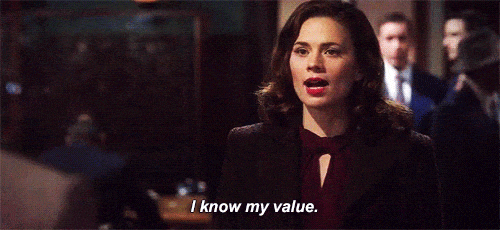
Avoiding Codependency
- Make sure you maintain your own hobbies and social life.
- Absence makes the heart grow fonder. Spending time apart will improve your time together.
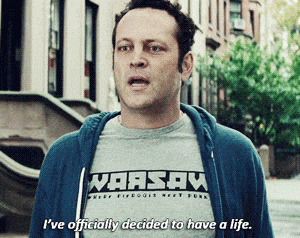
Acknowledging Limitations
- It’s not your responsibility to “fix” anyone.
- Your partner has to want to change- you can’t force them to make improvements in their life.
- Manage your expectations.
- Nobody’s perfect! There will be challenges to overcome in every relationship.
- Establish boundaries.
- Discuss what you each want your relationship to look like.
- “Consent is a safe, open and ongoing conversation about what both people are comfortable with and actively want to experience together” (Source)
- Your partner does not have ownership of your body. Click for more info on consent
Now you know more about maintaining a healthy relationship! Hopefully these tips come in handy next time you’re arguing over what movie to watch on Friday night.
Note: If you suspect your relationship might be unhealthy or abusive, don’t hesitate to call us (Tri-City Transitions Society) at 604 941 7111
Empower Youth by Supporting The Home Depot’s Orange Door Project
We are proud to partner with The Home Depot Canada Foundation again in The Orange Door Project. By purchasing a $2 paper door, customers will help homeless youth get the housing, support and hope they need to live safe, healthy and productive lives.
From now until June 24th, all funds raised at the Coquitlam Home Depot store will support Tri-City Transitions. Tri-City Transitions’ programming empowers families, helping youth impacted by domestic violence.
The Home Depot Canada Foundation is committed to ending youth homelessness, pledging to invest $20 million over five years through The Orange Door Project. Encourage your friends, family members, neighbours and colleagues to support the campaign today!
Learn more at orangedoorproject.ca.
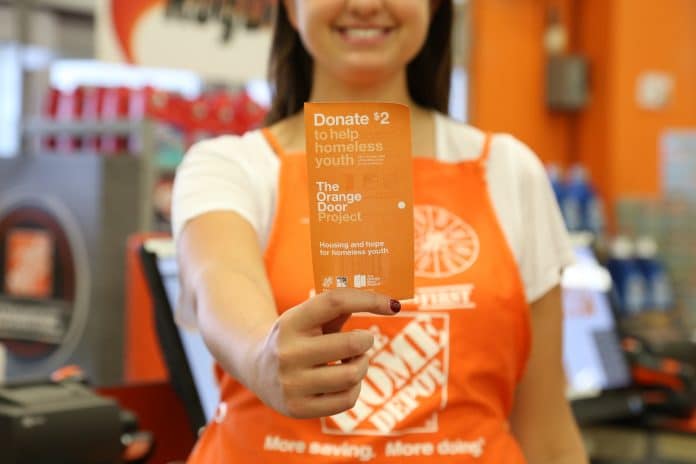
Image credit: The Home Depot Sault Ste. Marie/Sault Online News, 2017. www.saultonline.com/2017/07/the-orange-door-project-2017/
